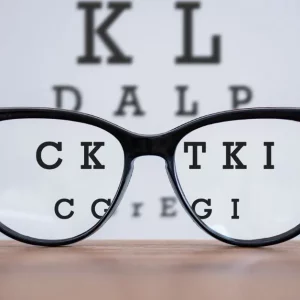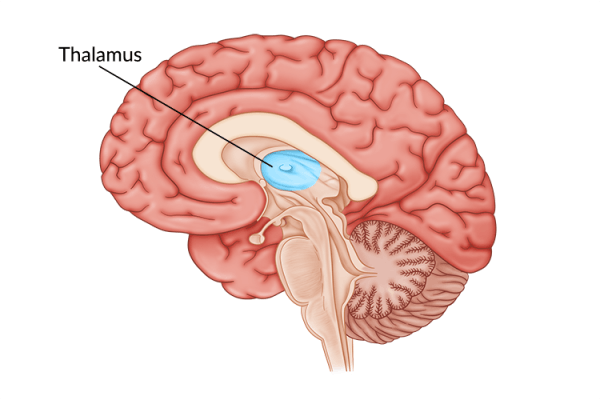Cognitive rehabilitation exercises are an excellent way to improve and preserve cognitive function after traumatic brain injury (TBI.) These exercises target specific thinking skills and abilities affected by TBI. Setting goals and tracking your progress with these exercises can help maximize their benefit.
In this article, we are going to cover some of the best cognitive exercises for TBI you can do at home to sharpen your mental skills.
Benefits of Cognitive Exercises for TBI Patients
Just as your body needs exercise to stay healthy, your brain needs to stay active in order to preserve function. Stimulating your brain through activity causes more neurons to fire, which helps keep your brain operating properly.
After a TBI, it is especially important to exercise your brain so that you can engage neuroplasticity, which is your brain’s natural ability to rewire itself.
You can do so by practicing several different cognitive rehabilitation exercises that challenge your brain to think in unique ways, causing it to create new neural pathways.
These new pathways will help you strengthen many cognitive skills, such as memory and recall, and even regain some skills you may have lost — like speaking after brain injury.
Want 25 pages of TBI recovery exercises in PDF form? Click here to download our free TBI Rehab Exercise ebook now (link opens a pop up for uninterrupted reading)
Attention and Concentration Exercises for TBI Patients
Research has identified and characterized many types of attention. Individuals struggling with cognition can request testing to identify their specific attention and cognitive deficits due to their injury.
An experienced Occupational Therapist or Speech and Language Pathologist can administer various cognitive tests. While more advanced testing can be ordered by your physician.
However, without professional testing, you can perform many simple cognitive rehabilitation exercises in the comfort of your home. The first batch described here challenges your attention and concentration.
These exercises can improve your ability to multitask and focus attention. All these cognitive rehabilitation exercises can be altered to be more or less difficult depending on an individual’s needs.
Some of these exercises will require help from another person such as a caregiver or family member:
1. Auditory Attention
Have the caregiver say a list of words in a slow, steady voice. Ask the person who has suffered the brain injury to make a mark on paper (or vocalize) whenever they hear a word beginning with a specific letter. This can be graded to be more difficult by the speed you read or the complexity of the words.
2. Rhythm Matching
A caregiver will tap a simple, two-step rhythm several times with their hand on the table (tap-delay-tap-tap). The person with the injury should try to match the rhythm.
If this seems too easy, you can both turn your chairs around so you are not facing each other. This way, you focus only on your auditory processing. The rhythm can be graded to be more or less complex for the individual with the brain injury.
3. Computational Memory
Pick any 2-digit number, then add 3 to that number three times.
Next, subtract 7 from that final number, and then repeat.
This exercise is great because your brain must attend to and hold on to several details at once. It also helps you get better at processing and organizing information. Again, this cognitive rehabilitation exercise can be made easier by starting with a simple number and adding and subtracting smaller amounts.
4. Practice Fine Motor Exercises
Practicing fine motor skills is a great way to improve cognitive function after TBI, especially if these skills have been impaired. Some fine motor exercises you can try are:
- Stacking pennies
- Therapy putty exercises
- Stretching rubber bands
- Jigsaw puzzles
You can even try learning a musical instrument, which has extra benefits for TBI recovery.
5. Use Your Non-Dominant Hand
If possible, try to use your non-dominant hand every once in a while during daily activities.
For example, brush your hair with your left hand instead of your right hand one day a week.
This not only engages a different side of your brain, it also stimulates your neurons to fire in a new way, which strengthens cognitive function.
6. Attention to Sensory Inputs
Sit outside, and write down everything you see, hear, and smell. This engages areas of the brain that are not usually active and will help improve your concentration on your senses.
If you have difficulty writing, you can also speak what you observe out loud. The important thing is to pay close attention to your surroundings. Even with few sights or sounds, exercising your attention is good for cognition.
Cognitive Rehabilitation Exercises for Memory Skills
The following exercises can be used to help you improve memory function:
7. Picture Recall
Caregivers, place two different cards from a deck of playing cards face up and let the person view them for 5 seconds. Then, put the cards back into the deck. Now, as the caregiver goes through the deck individually, point or identify the cards that were previously face up.
Increase the number of cards to a max of 5 as the person progresses. The individual has to exercise sustained attention while the cards are being exposed, as well as memory as they have to keep in mind the one they saw in the beginning.
8. Naming Therapy
This cognitive rehabilitation exercise is often used to help people suffering from aphasia recall words, but it’s also a great way to improve memory in general.
One good naming therapy exercise is to have someone else write down a general category (such as tools, animals, plants, countries, occupation, foods, sports, etc.)
Then try to remember and name (verbally or in writing) as many items in that category as possible.
For caregivers, if the patient gets stumped, you can give hints. For example, if they can’t come up with any animal names, you can tell them to think of a farm or zoo, etc. Remember giving a hint is not cheating. It can help the brain make connections.
9. Grocery Shopping
When you go to the grocery store, search independently for 2 or 3 food items from your grocery list without referring to the list. If this becomes easy, increase the number of items to remember until you can recall 7 items without using the list.
This challenges your memory and attention as you have to focus while blocking out the distractions of the market. This is a fairly advanced task and may not be suitable for patients who are easily distracted/stimulated by sights and sounds.
10. Card Recall
Select four playing cards in sequence (3, 4, 5, 6 of clubs) and place them in random order face up. After studying the cards for five seconds turn the cards face down.
Then turn the cards over in sequence (3, then 4, then 5, then 6).
As you improve increase the number of cards in the sequence, allowing one more second of view time for each card added, to a maximum of 7 cards. This immediate recall is different from long term memory but still important for daily functioning.
Problem Solving and Strategy Cognitive Rehabilitation Exercises
The following cognitive rehabilitation exercises can be used to help you improve your problem solving and planning skills:
11. Making Change
Caregivers, give the person some coins and asks them to tell you which coins would add up to 35 cents, 54 cents, etc.
12. Color Sudoku
Color Sudoku stimulates similar pattern and logic areas of the brain as number Sudoku does, but is easier for people who might still have trouble manipulating numbers.
13. Tower of Hanoi
The Tower of Hanoi is a great mathematical puzzle that can improve several cognitive abilities.
The puzzle consists of three rods and at least 3 disks. (The more disks there are, the harder the puzzle is.)
The goal of the puzzle is to move all the disks over from the first to the third rod without having a larger disk end up on top of a smaller one.
This not only engages the logic and problem-solving areas of your brain, but it also requires you to plan ahead and strategize, which helps train executive functions.
14. Chess, Sudoku, and Crossword Puzzles
Chess and other brain-stimulating games like Sudoku and crossword puzzles are great for activating the left side of your brain and improving your problem-solving skills.
Crossword puzzles are especially helpful for developing word recall skills.
15. Cognitive Therapy Apps
The key to improving is repeating these exercises regularly. You may want to find apps that are fun and engaging so that you will keep using them. You can use cognitive exercise apps to motivate yourself to exercise your brain frequently. The more you practice, the sharper your mental skills will become.
To supplement these cognitive rehabilitation exercises and see greater results, you can use the CT Cognitive Therapy App to access over 100,000+ cognitive rehabilitation exercises.
It’s a great fit for TBI patients that want to improve memory, critical thinking, and speech.
Want to boost your stroke recovery with evidence-based speech and cognitive therapy today? Get started here (link opens a pop-up for uninterrupted reading.)
Also, remember that it matters what kind of environment you are in while doing these exercises. If it is loud with lots of visual distractions where you are, it may be much more difficult to be successful with your exercises. So, try to create environments at home that allow you to maintain good attention and have success.
And there you have it! We hope you have fun while improving your brain’s capacity!










